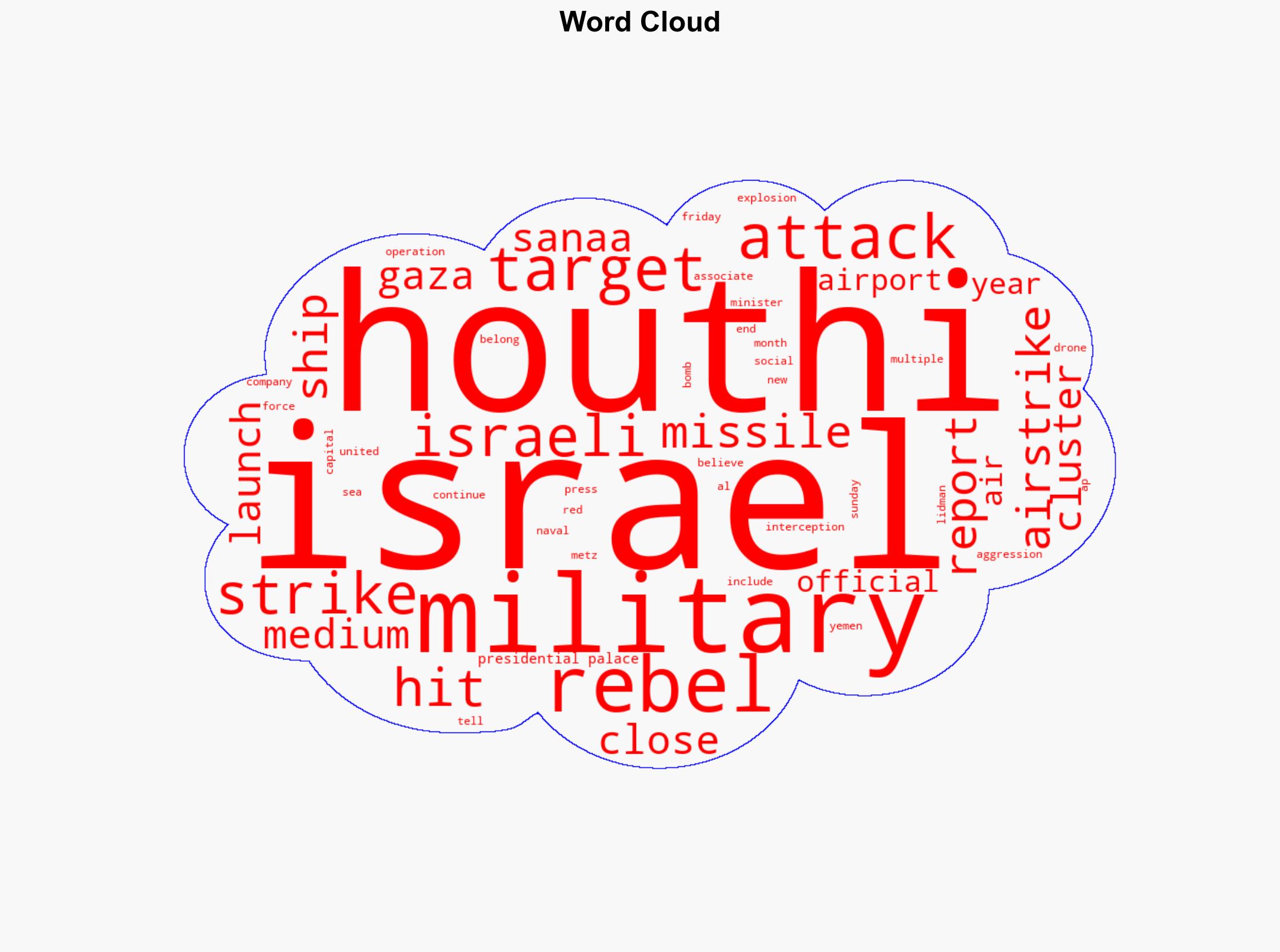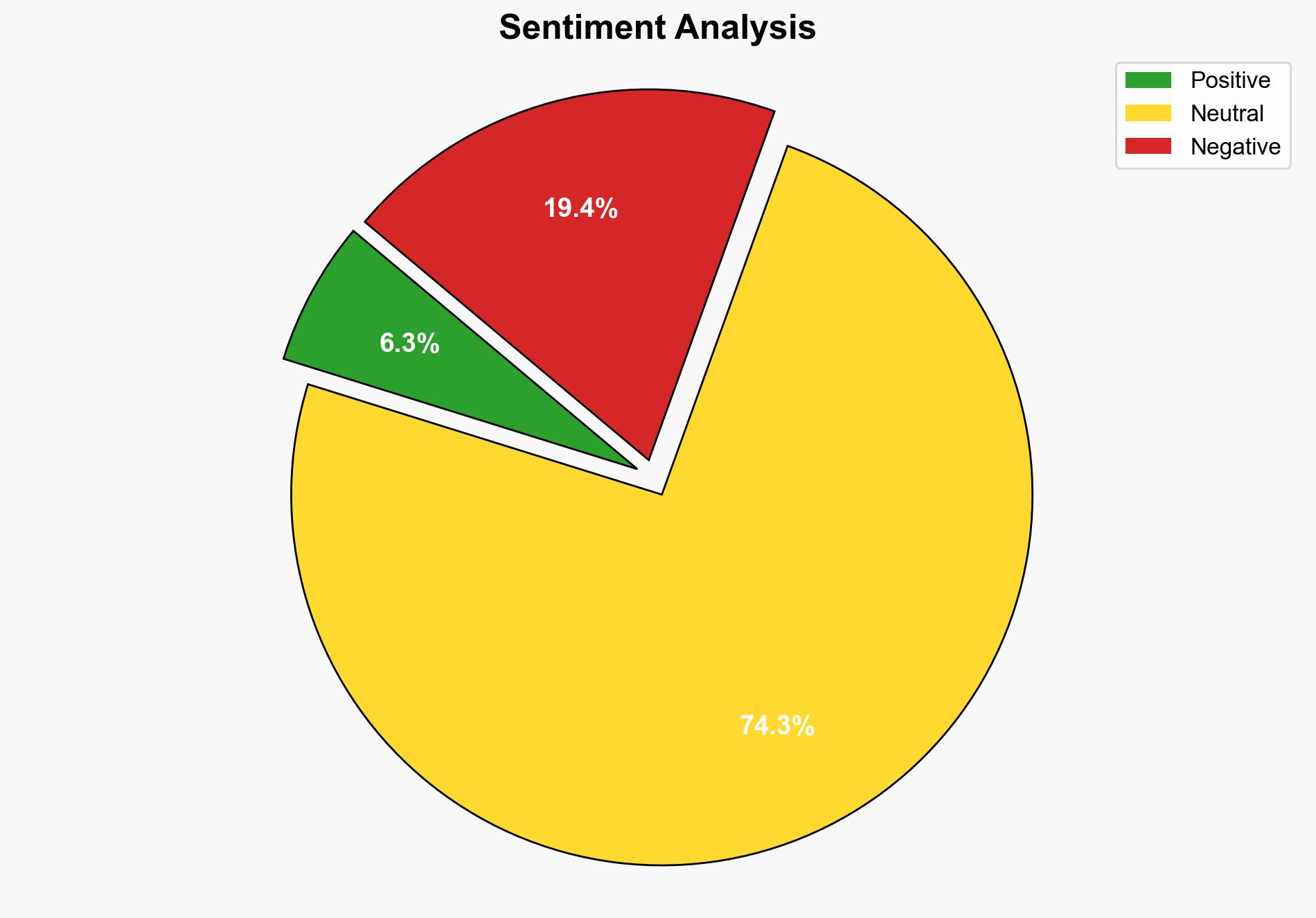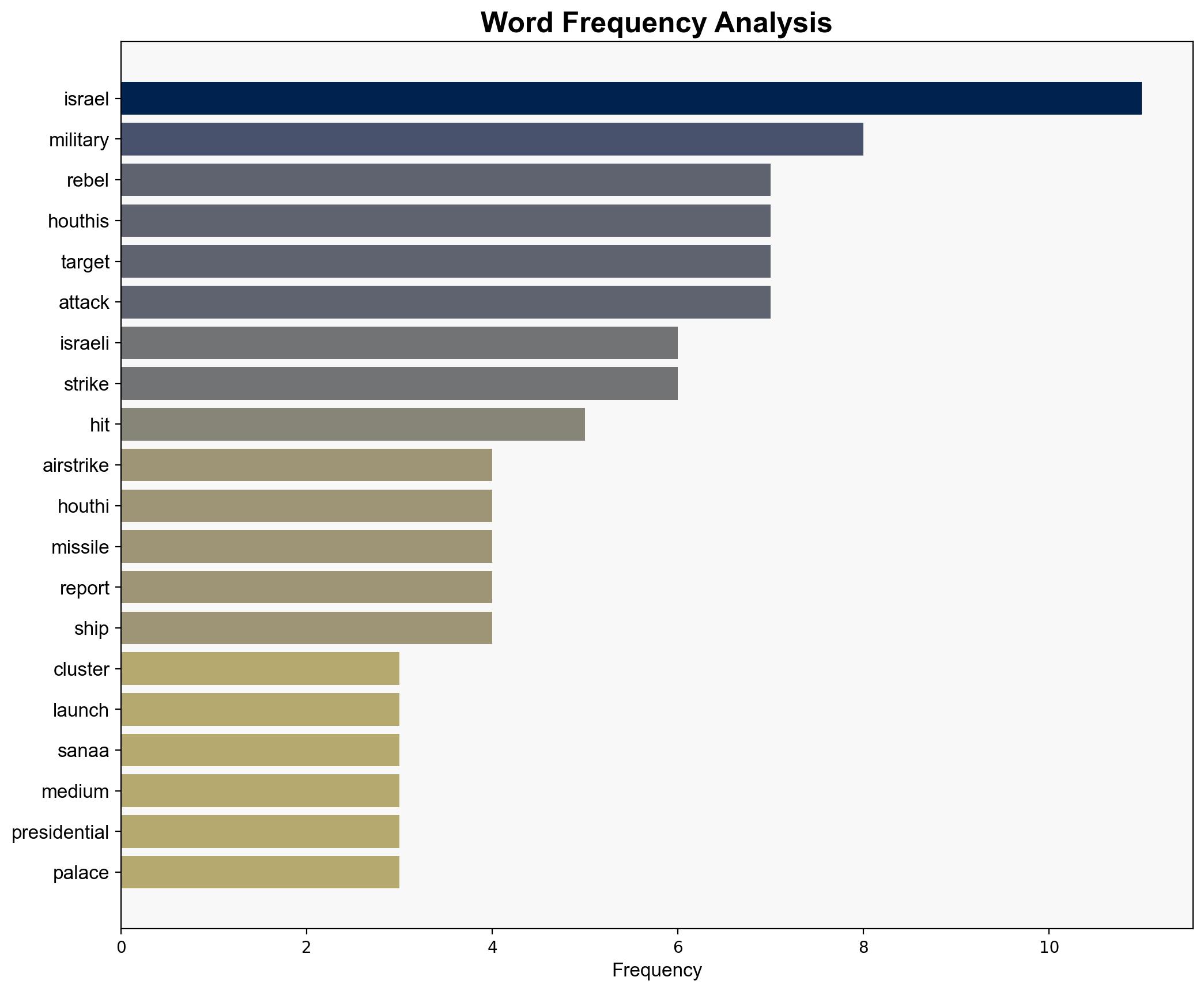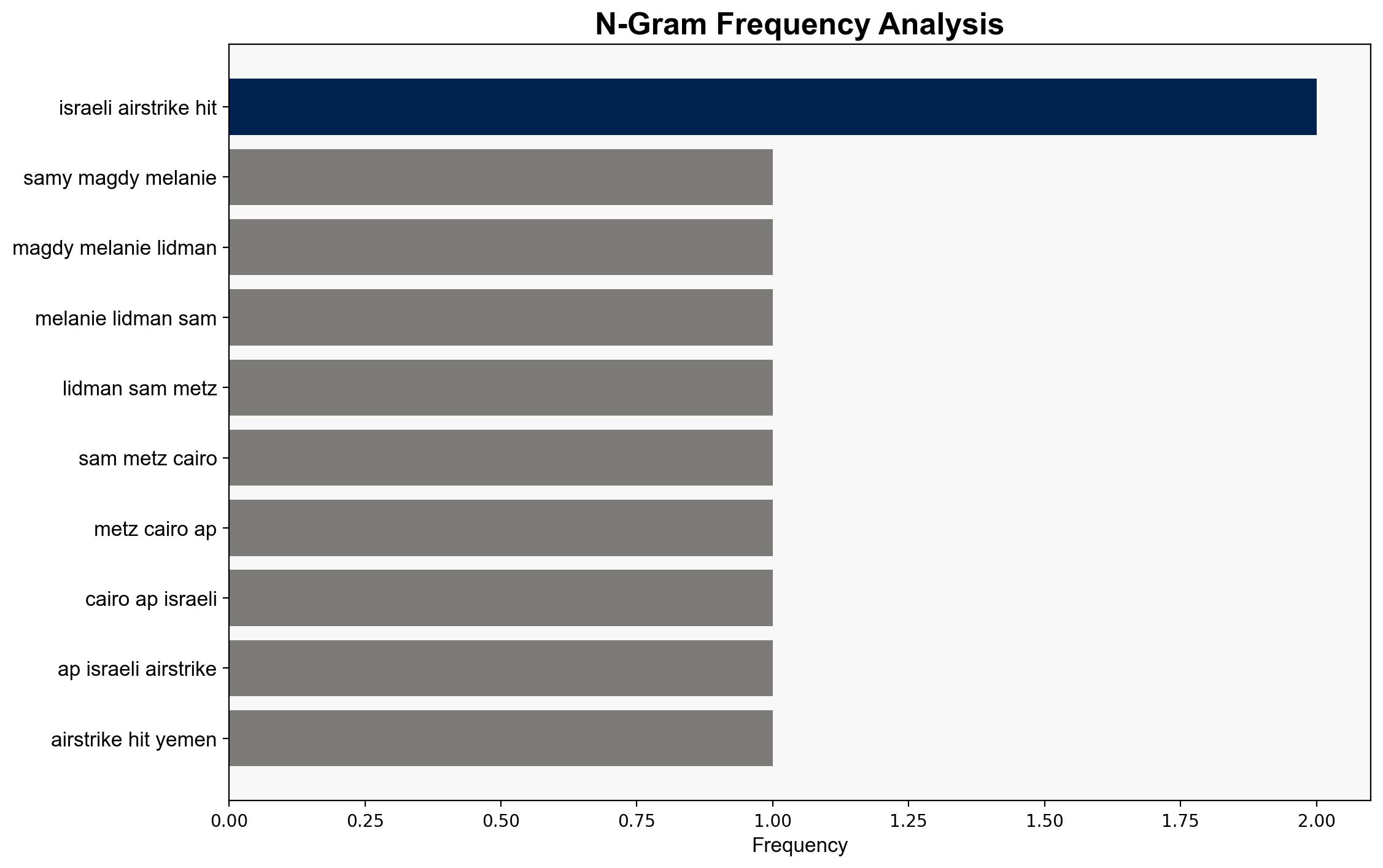Israeli airstrikes hit Yemens capital targeting Iran-backed Houthis – Boston Herald
Published on: 2025-08-24
Intelligence Report: Israeli airstrikes hit Yemens capital targeting Iran-backed Houthis – Boston Herald
1. BLUF (Bottom Line Up Front)
The most supported hypothesis is that Israeli airstrikes are a strategic response to the increasing threat posed by Houthi missile capabilities, potentially enhanced by Iranian support. Confidence level: Moderate. Recommended action: Monitor further Houthi military developments and Iranian involvement closely, while preparing for potential regional escalation.
2. Competing Hypotheses
1. **Hypothesis A**: Israeli airstrikes are a direct response to the immediate threat posed by Houthi missile and drone attacks, particularly those targeting Israeli interests and allies in the region.
2. **Hypothesis B**: The airstrikes are part of a broader Israeli strategy to weaken Iranian influence in the region by targeting its proxies, such as the Houthis, to prevent further destabilization.
Using ACH 2.0, Hypothesis A is better supported due to the immediate context of recent Houthi attacks on Israeli targets and the direct threat they pose. Hypothesis B, while plausible, lacks immediate evidence linking the airstrikes directly to a broader anti-Iran strategy beyond the immediate tactical response.
3. Key Assumptions and Red Flags
– **Assumptions**: It is assumed that the Houthis’ missile capabilities are significantly enhanced by Iranian technology and support. There is an assumption that Israeli airstrikes will effectively deter future Houthi attacks.
– **Red Flags**: The possibility of underestimating the Houthis’ resilience and capability to retaliate. Lack of concrete evidence directly linking the airstrikes to a broader anti-Iran strategy.
– **Blind Spots**: Potential underreporting of Iranian involvement or indirect support to the Houthis.
4. Implications and Strategic Risks
– **Escalation Risk**: Continued Israeli airstrikes could provoke further Houthi retaliation, potentially drawing in other regional actors and escalating into a broader conflict.
– **Geopolitical Impact**: Increased tensions between Israel and Iran, with potential impacts on global oil shipping routes through the Red Sea.
– **Economic Risks**: Disruption of shipping lanes could affect global trade, particularly energy supplies.
– **Psychological Impact**: Heightened tensions could lead to increased regional instability and fear among civilian populations.
5. Recommendations and Outlook
- Enhance intelligence gathering on Houthi capabilities and Iranian support to anticipate future threats.
- Engage in diplomatic efforts to de-escalate tensions, potentially involving neutral parties to mediate.
- Scenario Projections:
- **Best Case**: Successful deterrence of Houthi attacks leads to de-escalation and stabilization.
- **Worst Case**: Escalation into a broader regional conflict involving multiple state and non-state actors.
- **Most Likely**: Continued tit-for-tat exchanges with intermittent periods of heightened tension.
6. Key Individuals and Entities
– **Hussein Mohame**: Resident near the presidential palace, witness to the airstrikes.
– **Ahmed Al Mekhlafy**: Resident affected by the airstrikes, providing local perspective.
– **Nasruddin Amer**: Deputy head of the Houthi media office, vocal about continued attacks on Israel.
7. Thematic Tags
national security threats, regional conflict, missile defense, Iran-Israel tensions, Middle East stability





